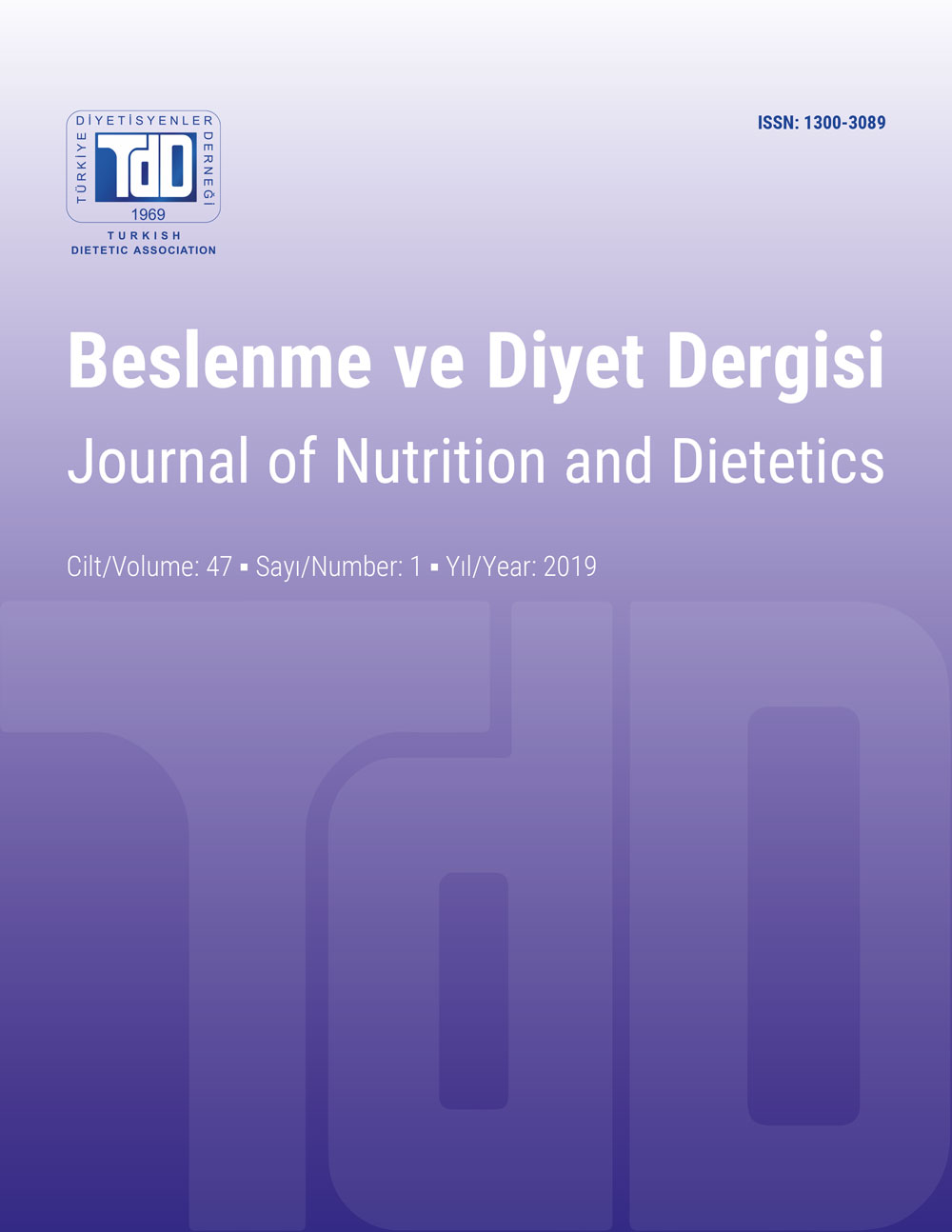The Effect of Different Amounts of Fructose Consumption on Some Anthropometric Measurements and Biochemical Parameters
DOI:
https://doi.org/10.33076/2019.BDD.1196Keywords:
Fructose, high fructose corn syrup, obesity, chronic diseases, nutritionAbstract
Aim: To determine the relation between daily dietary fructose consumption as natural and high fructose corn syrup with anthropometric measurements, blood biochemical parameters and other nutritional parameters.
Subjects and Method: The study was conducted with 90 healthy individuals (41 male, 49 female) aged between 18-65 years. Demographics, nutritional habits, nutritional status and physical activity levels of the participants were determined, anthropometric measurements were evaluated, biochemical parameters were analyzed.
Results: The mean daily dietary fructose consumption was 42.3±22.74 g/d, and daily dietary consumption of fructose was higher in males than females (49±26.13 g/d and 36.7±17.85 g/d, p<0.05, respectively). The percentages of the participants that consumed fructose daily ≥50 g and ≥ 10% of the total energy was 33.3% (39% of males, 28.6% of females) and 18.9% (14.6% of males, 22.4% of females), respectively. Daily fructose consumption was highest in the obese group (body mass index≥30 kg/m2). When the average of blood biochemical parameters of individuals according to gender, daily diet fructose consumption and amount of from total diet energy were compared, there was no statistically significant difference between groups in terms of glucose, uric acid, total, high density lipoprotein, low density lipoprotein cholesterol, triglycerides, serum glutamic oksaloasetic transaminase, serum glutamic pyruvic transaminase and insulin values (p>0.05).
Conclusion: High fructose consumption may cause major risks for obesity, insulin resistance, impaired glucose tolerance, type 2 diabetes, hyperlipidemia, cardiovascular diseases, hyperuricemia, gout and metabolic syndrome. So, the healthy preference of fructose source in diets is fruit and the amount of safe dietary intake of fructose should be less than 10% of total energy.

